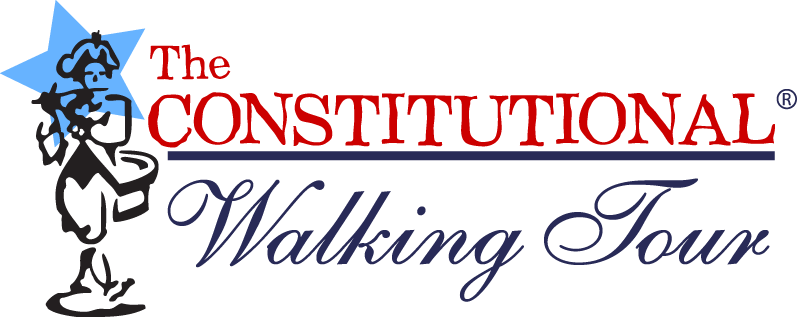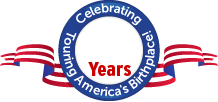Related Posts
- Buy Tickets for The Constitutional Walking Tour of Philadelphia – See 20+ Sites on a Primary Overview of Independence Park, including the Liberty Bell and Independence Hall
- Salute to America Flyover - Great Cities of the American Revolution
- The Boston Tea Party - This Day in History
- Samuel Adams
- Dr. Benjamin Rush - One of America's Founding Fathers
- Thomas Mifflin - One of America's Founding Fathers
- Benjamin Franklin - One of America's Founding Fathers
- John Adams - One of America's Founding Fathers
- Washington Crossing Historic Park
On This Day in History, December 25, 1773, the Philadelphia Tea Party Occurred

On December 25, 1773, the Philadelphia Tea Party, a protest against taxation without representation, took place in Philadelphia, Pennsylvania.
There were widespread protests spread across the American Colonies in response to the Tea Act, the most famous of which, The Boston Tea Party, took place in Boston Massachusetts about a week earlier than the Philadelphia Tea Party. Organized by the Sons of Liberty, a Boston based group led by Samuel Adams, the Boston Tea Party was famous for its destruction of British tea, by dumping it into the Boston Harbor.
There was no such destruction of tea at the Philadelphia Tea Party. A shipment of tea roughly twice as large as the shipment destroyed in Boston began sailing up the Delaware River in December of 1773. The "Polly," the first of seven ships carrying Philadelphia's tea shipment docked in Chester, Pennsylvania, and it was then escorted to Philadelphia on Christmas day. The reason there was no destruction of tea in Philadelphia was because Philadelphians intimidated the ships' captains carrying the tea to the point that they did not even attempt to unload their tea in Philadelphia.
The Captain of the "Polly," Captain Ayres, arrived in Philadelphia and found that the city was covered in broadsides (posters) that directly addressed him as the captain of one of the tea ships. The Broadside was said to have been posted by the "Committee for Tarring and Feathering" and did not leave much to the imagination as to what was in store for Captain Ayres if he attempted to unload his tea shipment in Philadelphia. The broadside stated the following:
"You are sent out on a diabolical Service; and if you are so foolish and obstinate as to complete your Voyage, by bringing your Ship to Anchor in this Port, you may run such a Gauntlet as will induce you, in your last Moments, most heartily to curse those who have made you the Dupe of their Avarice and Ambition.
What think you, Captain, of a Halter around your Neck—ten Gallons of liquid Tar decanted on your Pate—with the Feathers of a dozen wild Geese laid over that to enliven your Appearance?
Only think seriously of this—and fly to the Place from whence you came—fly without Hesitation—without the Formality of a Protest—and above all, Captain Ayres, let us advise you to fly without the wild Geese Feathers."
Captain Ayres did not even attempt to unload his shipment of tea in Philadelphia, and within short order, he and the other six ships carrying Philadelphia's tea shipments reversed course and headed toward the Delaware Bay.
It is worth noting that although the Boston Tea Party took place nine days earlier than the Philadelphia Tea Party, this sequence of events was only dictated by when the tea shipments arrived in each respective city. Philadelphia had actually started planning the Philadelphia Tea Party on October 16, 1773. Led by Philadelphia patriots such as Benjamin Rush and Thomas Mifflin, Philly had adopted what came to be known as the Philadelphia Resolutions, a list of grievances against the British Government regarding the Tea Act, and resolved that they would not allow the impending Tea Shipment to be unloaded in Philadelphia. The Philadelphia Resolutions were subsequently published in Benjamin Franklin's Pennsylvania Gazette and widely distributed throughout the American Colonies.
In fact, when Bostonians met to discuss what to do with the impending tea shipment three weeks later, they directly referenced the earlier Philadelphia meeting and the resulting resolutions:
“That the sense of this town cannot be better expressed than in the words of certain judicious resolves, lately entered into by our worthy brethren, the citizens of Philadelphia,”
Boston then resolved to follow the same course of action as had been laid out in Philadelphia and only resorted to destroying the tea when the Bostonians' attempts to prevent the tea shipment from being unloaded in Boston were not successful. John Adams even said that the creation of Philadelphia Resolutions on October 16, 1773 was the true beginning of the American Revolution, as referenced by this 1809 letter from Benjamin Rush to John Adams:
"I once heard you say the active business of the American Revolution began in Philadelphia in the act of her citizens in sending back the tea ship, and that Massachusetts would have received her portion of the tea had not our example encouraged her to expect union and support in destroying it… The flame kindled on that day soon extended to Boston and gradually spread throughout the whole continent. It was the first throe of that convulsion which delivered Great Britain of the United States."



